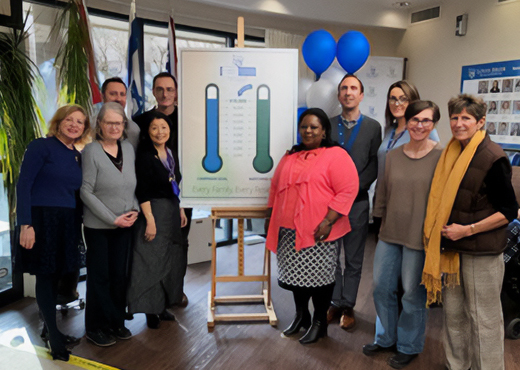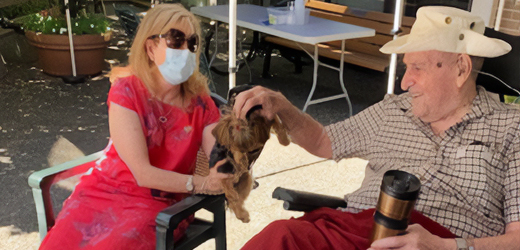Posted
Key Takeaways
Long-term care homes become the personal space of residents, not just places for everyday care. It is important that people in care have input into decisions that affect their daily lives and have support from their families or a long-term care home’s family council to advocate on their behalf. Recent regulations have been revised to strengthen the ability of family councils and operators to collaborate, giving people and their families more say in the issues that affect their daily lives.
There’s a key concept that is sometimes missed when talking about long-term care homes.
On the face of it, long-term care settings provide everyday care for people with complex needs when they can no longer live safely and independently at home. This may include help with daily activities such as eating or personal care, or health care services.
But beyond that, it’s important to remember that long-term care environments also become someone’s personal space – their home. That’s why it’s critical they have input into decisions that affect their daily lives, or have the support of their families or a long-term care home’s family council to advocate on their behalf.
“According to research, it’s been shown that the family plays an important role in senior care. A family member’s involvement can have an impact on a person’s quality of life in care,” says Lisa Dawson, chair of the Vancouver Coastal Association of Family Councils. Lisa is also co-chair of the family council at the long-term care home where her father has lived for the last dozen years.
“Think of it like a partnership between people with a common goal,” says Lisa, “because both families and care home operators want to achieve the best quality of life and care possible for those living in long-term care.”
This doesn’t mean there aren’t bumps along the way – caregivers and long-term care homes both face heavy workloads and their own unique responsibilities. Lisa says open dialogue is the key to addressing those competing priorities, and that’s why she’s pleased to see long-term care regulations have been updated by the BC Ministry of Health.

The regulations have been revised to strengthen the ability of family councils and operators to collaborate and work together more transparently and successfully. This means long-term care home residents and their families will have more say into the issues that affect their daily lives.
“The new regulations help to strengthen the support for engagement of resident and family councils in long-term care,” Lisa says.
The updated regulations include:
- requiring care home operators to meet with a council twice a year or more frequently to promote the collective interests of persons in care
- ensuring resident and family councils are able to meet without operators if preferred
- calling for operators to provide, without cost, administrative support of an employee who is approved by the council for the council meeting, as well as access to a meeting room on the premises and equipment for the meeting
- ensuring operators respond in writing to all recommendations brought forward by resident and family councils, and share information from the Ministry of Health and seniors advocate with members of the resident and family councils
Family councils are groups of families or friends of importance to people in long-term care who advocate on collective concerns and make recommendations for improving care. But that’s just a small part of their role, says Lisa.
Family councils can help to promote a home-like atmosphere, support social activities, community events and seek ways to meet individual needs. That might include welcoming new families during the transition to long-term care through a welcome tea or information package. Or helping out in the care home’s garden, fundraising for comfort items in common areas, and bringing in guest speakers such as health care professionals with specialization in nutrition or dementia to help educate family members.
Family councils also help build community, which creates a culture of dialogue, connection and collaboration with care providers. Lisa says families recognize the hard work care teams do every day. By working together, they can create an environment of empathy, understanding and trust that keeps the person in care at the centre.
“All of these things make a difference in the lives of residents, their families and staff, and the health care system that supports them,” says Lisa. “It’s the community of care coming together to improve health care!”
Learn more about family councils in BC:
Resident and Family Councils
Supporting an Active Partnership A Service Providers Guide to Family Resident Councils (PDF)
Learn more about the new regulations that strengthen support for family councils in BC:
Residents, family will have stronger voices in long-term care homes
Contact your regional association of family councils:
Provincial Association of Family Councils
Independent Long-Term Care Councils Association of BC (ILTCCABC): iltccabc@gmail.com
ILTCCABC’s member Regional Associations of Family Councils
Fraser Association of Family Councils: FAFC2021alicea@gmail.com
Interior Association of Family Councils: interiorfamilycouncils@gmail.com
Northern Association of Family Councils: nelsonmord@gmail.com
Vancouver Coastal Association of Family Councils: vcafc.regional@gmail.com
Vancouver Island Association of Family Councils: VIAFC@shaw.ca

